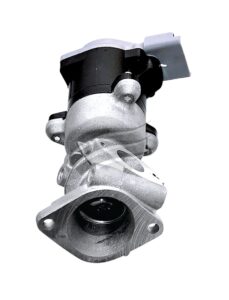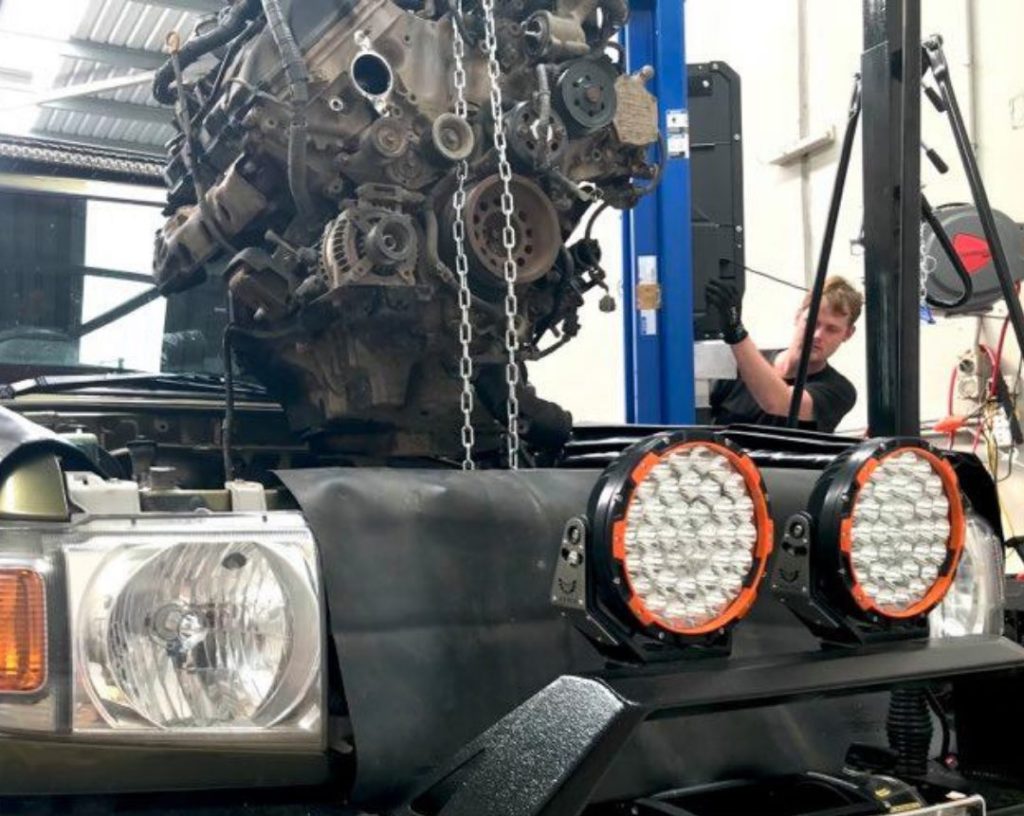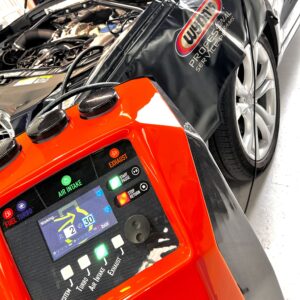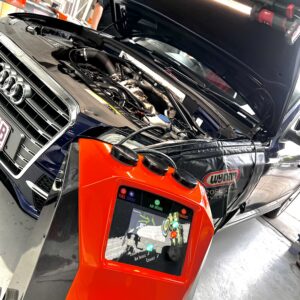Exhaust Gas Recirculation (EGR) systems can impact the performance of a diesel engine, although the extent of the impact depends on various factors such as the engine design, the EGR system design, and the operating conditions.
In general, EGR systems are used to reduce nitrogen oxide (NOx) emissions, which are harmful pollutants that contribute to air pollution. The EGR system recirculates a portion of the engine’s exhaust gas back into the intake, diluting the incoming air-fuel mixture and reducing the peak combustion temperature, reducing NOx emissions.
However, this process also reduces the oxygen content in the incoming air-fuel mixture, affecting the engine’s performance. This can lead to reduced power output, increased engine cylinder pressure, increased engine oil contamination, increased engine deposits, and increased back pressure in the exhaust system, among other things.
Therefore, EGR systems can have a trade-off between reducing emissions and maintaining engine performance. Some engine and EGR system designs are better optimized to minimize this impact. In contrast, others may require adjustments to the engine’s operating parameters, such as engine tuning or diesel particulate filters, to minimize the impact on performance.
What is Diesel Exhaust Gas Recirculation (EGR)?
Yes, that’s correct. The EGR system can cause a decrease in engine performance, increased engine temperatures, increased black smoke output, and poor idle quality.
These issues are a result of the recirculated exhaust gases reducing the oxygen content in the incoming air-fuel mixture, which can affect the engine’s combustion process. Over time, the EGR system can become clogged with carbon deposits, reducing its efficiency and causing further performance issues. Regular maintenance and cleaning of the EGR system can help to mitigate these issues and ensure optimal engine performance. In some cases, it may also be necessary to replace the EGR system if it becomes damaged or worn out.
Read More: How to Maintain Diesel Engine Performance & Retain Emissions Compliance

Diesel engines and EGR in Australia
Most Diesel engine models have been known to have issues with their EGR systems, particularly in Australia, due to the harsh operating conditions in the region. If the EGR system is not regularly serviced or maintained, it can become clogged with oil and soot, which can lead to reduced engine performance and reliability issues. It is important for owners of these vehicles to have their EGR systems regularly inspected and cleaned or replaced as needed to ensure optimal engine performance and reliability.
Additionally, using high-quality fuel and lubricants and performing regular maintenance can also help to mitigate these issues and ensure the longevity of the EGR system.
Read More: What is DPF in a Diesel Engine?

The impact of EGR on your Diesel
The impact of EGRs on Diesel models can vary, but common issues include reduced power, fuel efficiency, and increased black smoke output.
When the EGR system is functioning correctly, it helps to reduce emissions and improve fuel economy. However, if the system is not properly maintained or becomes clogged with deposits, it can lead to reduced engine performance and increased emissions. Owners of these vehicles need to have their EGR systems regularly inspected and cleaned or replaced as needed to ensure optimal engine performance and maintain emissions compliance.
Read More: Avoid EGR issues with an ECU Remap

Carbon Ingress in the EGR and Intake
Over time, the EGR system can become clogged with carbon build-up due to the oil and soot in the exhaust gas, and this can lead to several performance issues. Carbon build-up in the EGR system can restrict airflow to the engine, causing a loss in power and torque. Additionally, carbon build-up in the intake manifold can block the engine’s air supply, further reducing performance. In severe cases, the carbon build-up can even cause engine damage.
Regular cleaning and maintenance of the EGR system, as well as using high-quality fuel and lubricants, can help to minimize carbon build-up and prevent performance issues.
Read More: Intake Manifold Cleaning
Preventing EGR from impacting performance
Regular maintenance and inspection of the EGR system can help to prevent performance issues caused by carbon build-up and other problems. It’s essential to have professional technicians, such as Diesel Tuning Brisbane, check the EGR valve regularly for signs of wear or damage, as this can indicate when it needs to be replaced or repaired.
Additionally, using high-quality fuel and lubricants can help to minimize carbon build-up and improve engine performance. By taking these steps, you can help to prevent the EGR system from impacting the performance of your Diesel engine.
Read More: Intake Manifold Cleaning

EGRs are necessary for emissions compliance, but they can impact engine performance. Performance tuning solutions, such as software upgrades, remapping the engine management system, and installing high-flow air filters, can help to improve engine performance even with an EGR system installed. These solutions can optimize the engine’s fuel delivery and air/fuel ratio, resulting in improved power and torque. Notably, a reputable and experienced professional like Diesel Tuning Brisbane should always do Diesel performance tuning to ensure the vehicle remains compliant with emissions regulations.



















